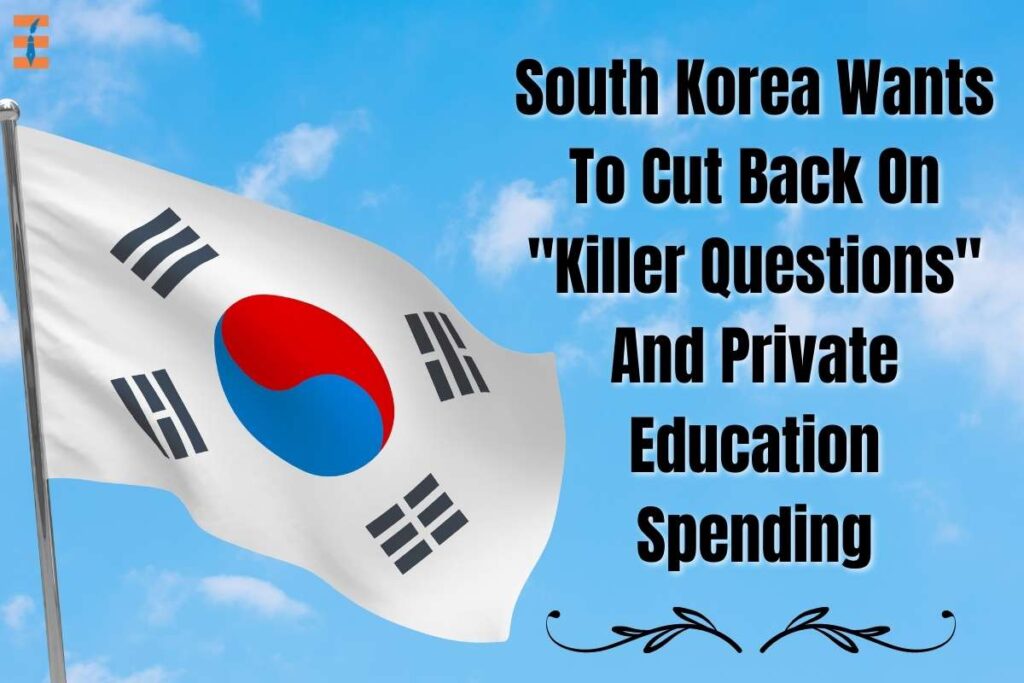The South Korean government presented proposals on Monday aimed at reducing the nation’s soaring private education spending and cut back on killer questions, which has been seen as a significant contributor to the nation’s dropping birth rate. The decision was made after President Yoon Suk Yeol lambasted college entrance exams this month for incorporating killer questions that are not taught in public schools’ curricula, including several that have been termed “killer questions” because of their difficulty.
Education Minister Lee Ju-ho stated at a briefing that “we will break the vicious cycle of killer questions in exams, which results in excessive competition among students and parents in private education.” The ministry also promised to take action against “cartels” in private education by stepping up efforts to oversee what it called deceptive and exaggerated advertising by private schools aimed at test preparation.
The private education sector and government education officials are allegedly connected in the development of college entrance exams that require private coaching to pass, according to local media reports. Despite a decline in student enrollment, South Koreans spent a record 26 trillion won ($19.97 billion) on private education in 2017, according to a report released jointly by the education ministry and the government statistics agency. According to the study, over eight out of ten pupils use “hagwons,” or cram schools, which are private educational products.
According to a survey from last year, South Korea has the world’s lowest birth rate and the country with the greatest expense of raising a child due to its disproportionate reliance on private schooling. Killer questions are frequently derived from subject matter that is not included in the curriculum of public schools, providing “hagwons” with an opportunity to advertise their capacity to instruct students in how to address them.
Education Ministry to announce detailed guidelines on dropping “killer questions” from college
The proponents of such queries claim that they aid colleges in the competitive process of selecting applicants, while Yoon brought up the fairness concern, noting that not every family could afford to pay for extracurricular activities. The proposed adjustments might not be sufficient to keep the rivalry under check, according to Shin So-young, an activist with the civic organisation The World Without Worry About Private Education.
In order to lessen the intense competition for admission to a select handful of the best universities, the government needs to develop a more comprehensive plan, according to Shin. Nearly 450,000 high school seniors and graduates who were retaking the exam last year took it in November. Throughout the whole daylong event, air travel is halted during the listening comprehension section of the English test.
Concerns regarding policy changes caused shares of South Korean companies with a connection to education to decline.MegaStudyEdu (215200.KQ) was down 2.11%, and Woongjin Thinkbig (095720.KS) was down 1.44% for the day. ($1 = 1,302.0300 won)

